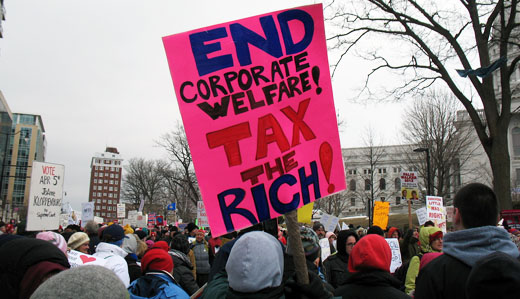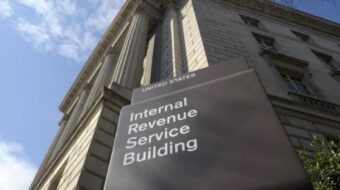
DETROIT – Democracy came out a winner in Michigan’s elections when Republican Gov. Snyder’s Emergency Manager (EM) law went down to defeat in a statewide referendum. The law, which allowed the governor to replace local elected officials with “financial dictators,” was rejected in 77 of 83 counties from the far reaches of the Upper Peninsula to Michigan’s Indiana border.
However, that great victory is already in jeopardy. It is being reported Republican lawmakers are drafting new legislation for a revised EM law.
So much for the will of the people.
Detroit is again in the crosshairs. A Detroit News columnist attributes the city’s budget crisis to the “dysfunction” of the city’s “political class.” Such disparaging characterizations aimed at this majority African American city shows racism plays a major role in how the city is viewed.
It is not surprising that the city is in financial distress. The downsizing of Detroit’s auto dependent economy and corporate decisions to move jobs out of the city, state and country would send any city into a tailspin.
In addition, a Wall Street and banking caused housing crisis resulted in foreclosures, vacancies and a further erosion of the tax base.
Nor is this solely an urban problem. In Michigan, both suburban and rural areas of the state face tough economic times and many have been threatened with the appointment of EM’s if they don’t buckle down and slash their budgets.
But are budget deficits the main problem Detroit and our nation face? Jared Bernstein in a recent AFL-CIO blog article says the real crisis we are facing in the nation is not deficits but the growing inequality between the rich and poor. He writes that the national deficit averaged five percent in the mid-80s, rose to 10 percent during the great recession but is now 7 percent and falling.
In other words, it doesn’t sound like a national emergency.
The article then talks about a real danger that has been growing for some time. Since the early 1980’s we’ve transferred fifteen percent of our national income from the bottom ninety percent of households to the top ten percent.
The main problem we face as a nation is not a lack of money; the problem is too much of it is in too few hands. Austerity measures and budget cuts will only widen the inequality gap by eliminating needed jobs and services for working people.
There are solutions to both fixing deficits and lessening income inequality and you don’t have to be a rocket scientist to figure them out.
A tax structure based on trickle down has not worked. Rates need to be increased for the top brackets. A start would be to let the Bush era tax cuts to the wealthy expire. Billionaire and investor Warren Buffet agrees.
Secondly, the military budget is bloated way beyond what is needed to defend our nation. Much of it goes to large corporations whose interests, at home and abroad, have more to do with making profits than providing security.
Military spending eats up a whopping sixty percent of our national budget and widens the inequality gap by gobbling up money that would better be used to rebuild our nation’s cities and rural areas. Only 7 percent of national spending goes for health and human services, six percent for education and a mere five percent is distributed to the states.
What would make our nation more democratic and its people more secure? The choices really are not that difficult. We need to tax the rich, cut the military budget and shift money toward rebuilding our cities and towns and the infrastructure of our nation.
Photo: keegstra // CC 2.0












Comments